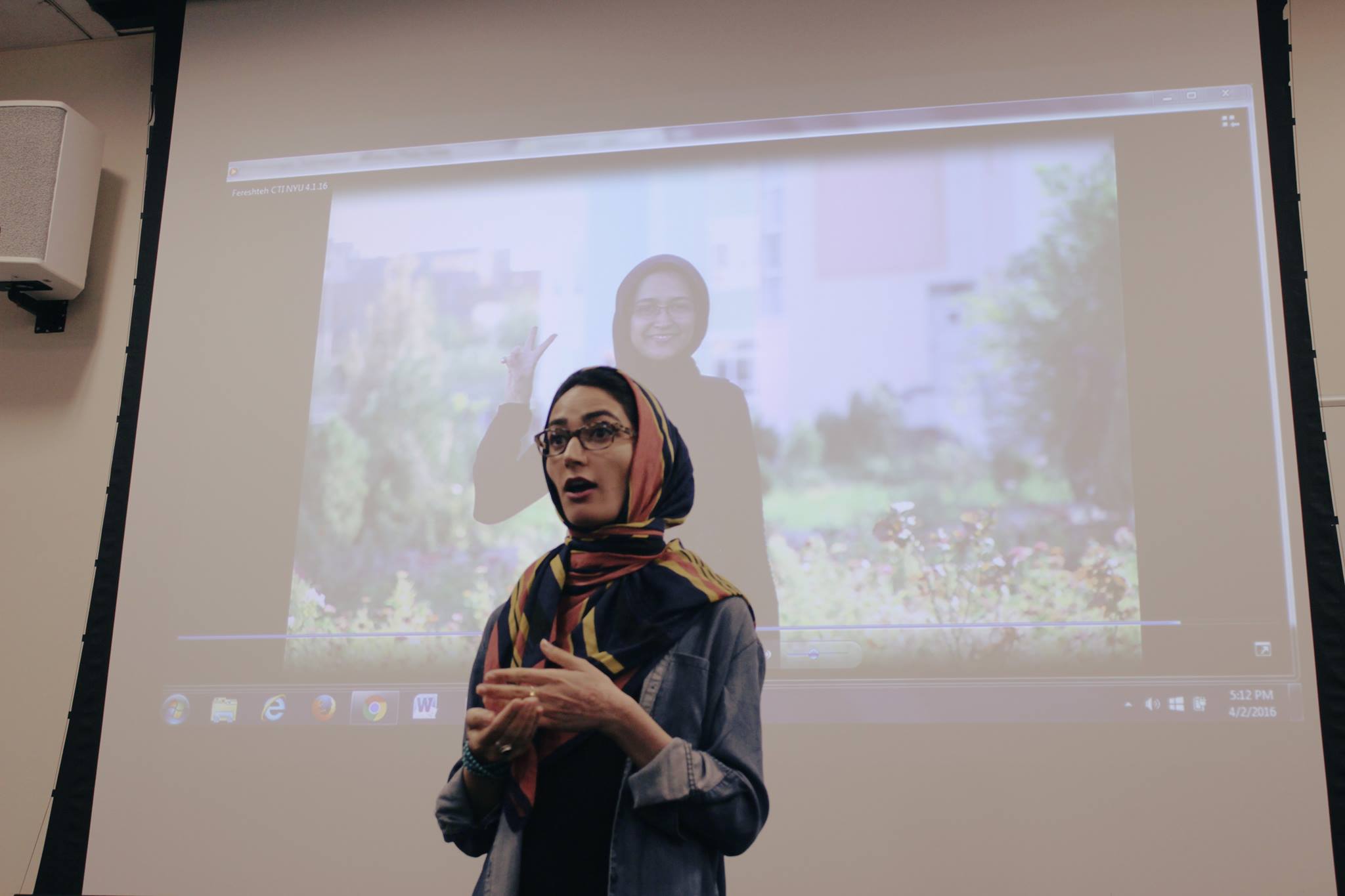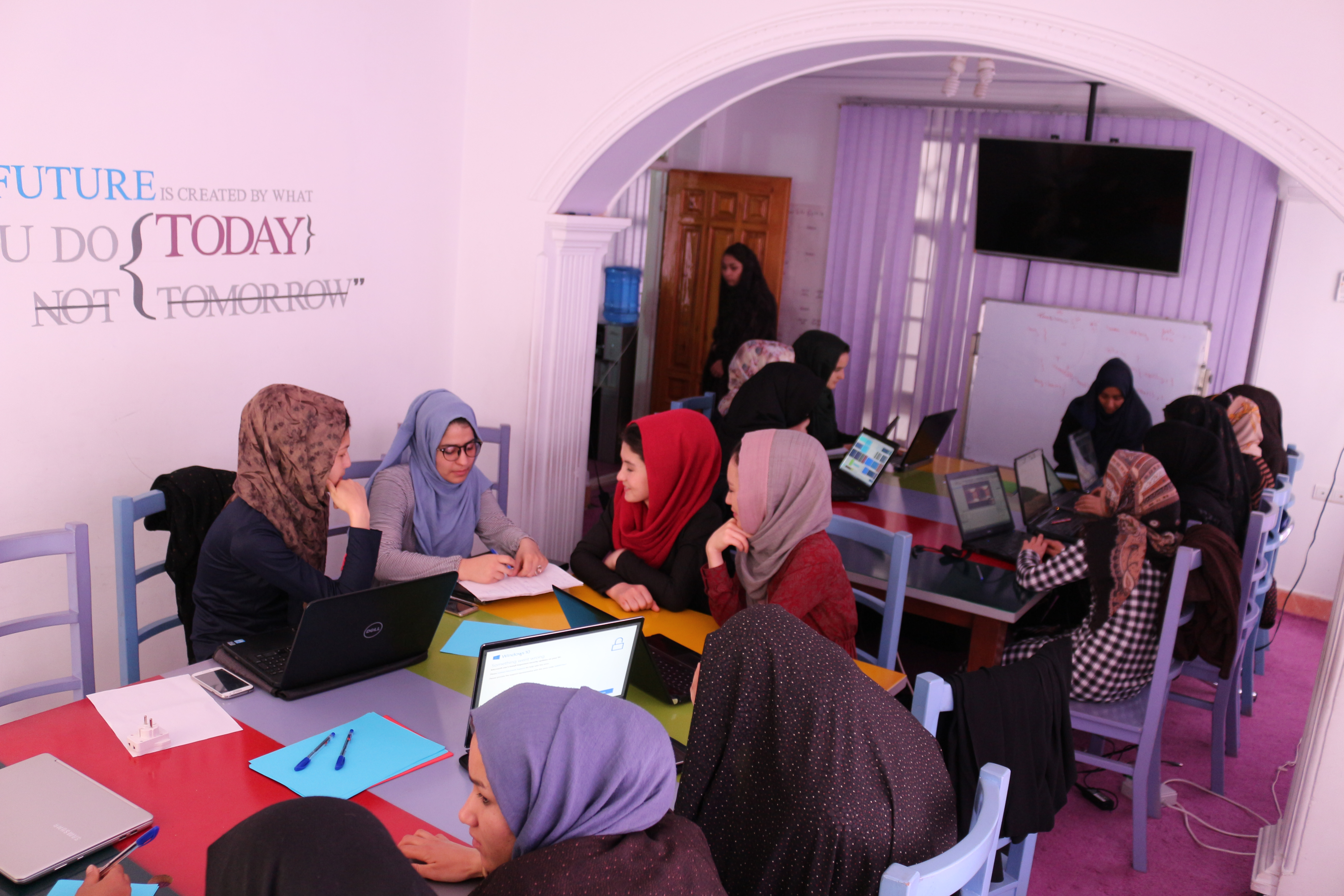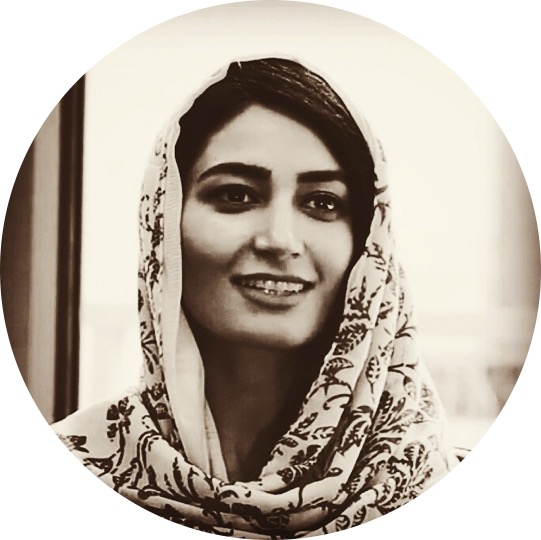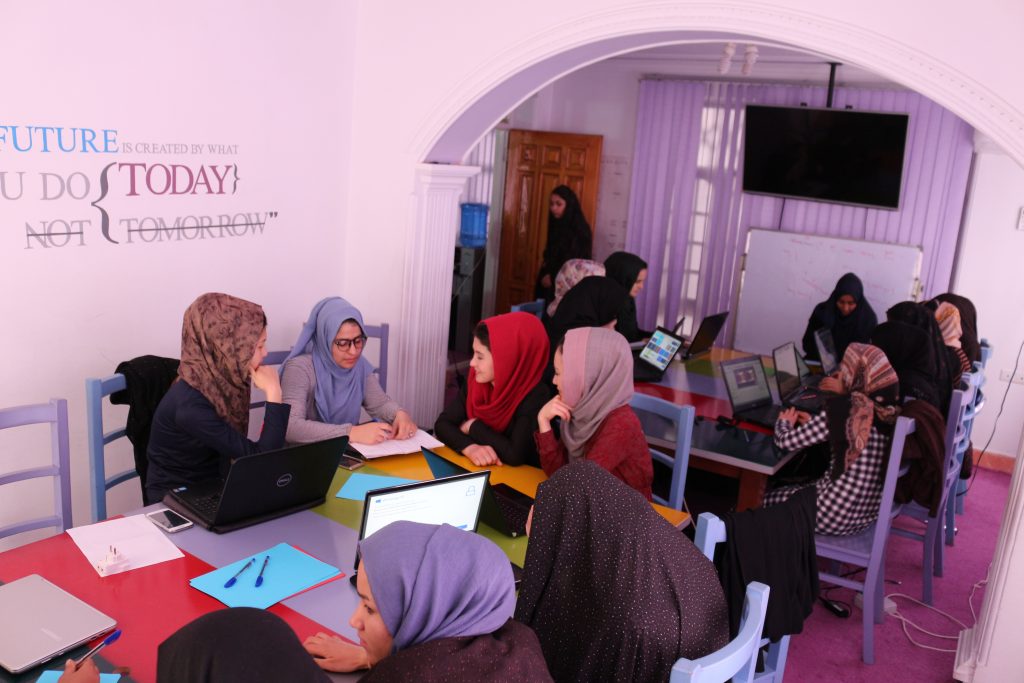Coding to Fight Gender Inequality

In the 2017/18 Women, Peace and Security Index launched by the Georgetown Institute of Women, Peace, and Security and the Peace Research Institute of Oslo, Afghanistan and Syria tied at the bottom as the worst countries to be a woman. In both countries, years of violence, discriminatory practices, and cultural barriers have denied women job opportunities and inadequate representation in the society.
In this feature, Fereshteh Forough drew upon her own experience of being born a refugee in Iran during the Soviet’s invasion of Afghanistan. She witnessed firsthand the lack of opportunities afforded to women. With the mission of educating Afghan women with in-demand programming skills, empowering them to add value to their communities, and inspiring them to strive for financial and social independence, Fereshteh established Code To Inspire, the first coding school for girls in Afghanistan.
Your motivation to build Code to Inspire (CTI) was based on your experience as a refugee, when did you realize that coding can actually be a tool for empowering women and girls?
My family and I faced a lot of challenges while living in another country as a refugee. Access to social infrastructures, like education, can be difficult. If we want to attend school, we had to provide certain papers to the administration, otherwise, they would not let us join the class. This happened to one of my brothers. Since he could not acquire the necessary documents, he missed school for one year. This is something that I always think about. How people should be accepted in education without restrictions or doubts.
Studying Computer Science was challenging in a way. We are talking about Afghanistan in 2001, a country which Taliban just left. There were no infrastructures and a lot of people do not have an education. I was a vocal and active student, which not a lot of my male classmates appreciated. Other female students were not as active. Additionally, job market opportunities for female Computer Science graduates were few. Culturally, many parents still prefer their daughters to become teachers because it was considered a more respected job in the community. In the case of traveling, many families did not allow their daughters to go to other cities for jobs or to visit other people unless they have a trusted family member with them. These issues certainly prevented them to be more active, social, and mobile. Moreover, many of the women and girls did not have an educational environment where they feel physically safe, and a secure platform where they can share their thoughts and ideas without being criticized, threatened, or afraid. These challenges and obstacles made me think about creating a safe and secure space that will provide educational resources so that girls can learn more and do more group activities. It is also free of charge so that families with financial challenges can send their daughters for extra-curricular activities without worrying about payment.
What is your vision for Code to Inspire? How can the government and the private sector contribute to this vision?
When we opened the school in November 2015, we had only 50 girls – a combination of High School and Computer Science undergraduate students. The most important reason why I established Code to Inspire was to help the girls to be financially independent. By learning how to code, they can find employment opportunities online. They can work online, get paid online, or have an idea and create a product and sell it. I want to help the girls become entrepreneurs, create ideas, or have outsourcing projects. Once we receive a lot of demands from the community, I would like to see the school expand. Presently, we have about 100 girls in our school in Herat.
The next step for CTI is to expand to other cities in Afghanistan and to create a strong network of women in technology, where they can support each other and provide opportunities for other women. Going a step further, I would like to see CTI in other regions such as Central Asia and South Asia; in countries that have a similar situation to us.
I would also like to see the girls take an interest not only in coding but also in the fields of Science, Technology, Engineering and Math (STEM). In some developing countries like Afghanistan, families prefer to invest in boys because they think boys will become the breadwinner of the family. They do not want to invest in girls because they are going to get married. There is no financial gain for her side. If resources would be provided and safe places to go to, surely girls can bring income to the family. That also changes the perception towards women in the workforce.
Surely, the government should implement more projects to address gender inequality. They need to look at the data to see what areas need improvement (e.g. gender pay gap, cases of harassment in the workplace). When formulating policies that will create a safe environment for their women to work in, governments and companies should look at these issues.
The private sector has also been a big help to our cause. Similar with other 501 (c)(3) registered non-for-profit organizations, we also raise funds through corporate giving and grant writing to support our programs. The Google RISE Awards is an example of a grants program, which we could apply to.
“From our own experience, it is important to engage the families and communities with our work. We believe that if we can get the support of the fathers and brothers, who are the decision-makers in the community, it will be a win for us. “
Since the coding school was established almost three years ago, has there been any changes in the perception of the role of women and girls in the community?
During the Taliban regime, only less than one million students went to school with zero female participation. There were even no women in the workplace. The situation changed when the Taliban was overthrown. Many programs have been established. Nearly seven million students go to school and about 37% or 2.5 million of them are girls. We have a 30% increase in female teachers. Looking at the numbers, it is certainly a great achievement for women. In bigger cities, you see families sending their daughters to school or helping them get to their workplaces. However, being a traditional, conservative, and patriarchal society, challenges still abound. We still see situations of early marriages that prevent girls from pursuing education.
From our own experience, it is important to engage the families and communities with our work. We believe that if we can get the support of the fathers and brothers, who are the decision-makers in the community, it will be a win for us. For example, we have one student who came up with the idea of creating an app about a game that she used to play with her brother on a paper. Through our program, she successfully created the game app. When she went home to show her family, they were surprised to see their daughter making something that the son was not able to do. This is what we are talking about – change and awareness.
We have fathers and brothers who come to the school to see what their daughters and sisters have been doing. They are happy to support the initiative and have encouraged other families to send their daughters to our school. This is very important to us because we want to establish that trust and relationship with the community.
Since we started promoting coding technology in Afghanistan, we have seen many other organizations in other cities become more interested in what we do and they try to apply similar models or short-term programs for women and coding. It gets a lot of momentum and we are happy with that because we want more women and girls engaged. It certainly changes the perspective of a lot of people.
In the use of technology for social impact, what applications have your students developed to fight against gender inequality and injustice?
We want to engage the community to help raise awareness for social impact. Part of the program is for the students to come up with an idea about a scenario in the community and create an app or a graphic design to raise awareness around that issue. For example, the brother of one of our gaming class students was working with the Afghanistan National Army fighting the Taliban in the opium fields. Having learned more about her brother’s story, she suggested to her team that they build a game that will highlight the mission and the challenges the National Army are going through, and inform the public about the horrors of opium use. The team received a lot of local and international recognition for the app they created.
The other mobile application developed by our students was the Afghan Backpack. The goal of the app was to encourage tourists to visit Afghanistan. When you say Afghanistan, people usually think of war, oppression, opium, and dark ages. Through this app, visitors can book hotels, find historical places, restaurants, and parks.
A group of our students also came up with an idea for a comic book of women superheroes. We do not have comic books in Afghanistan and if you ask a child about superheroes, they would probably identify a male Western figure. We want to change the perspective that not all superheroes are male. We just released the first version of our comic book and we are looking for sponsors and supporters, like Disney, who can help us publish so we can distribute it to schools and other places.
As technology advances, how do you make sure that it is not used to undermine democratic values and institutions?
There is always positive aspects and negative aspects of something. But I think it depends on the individual how they will use that tool or platform for their own benefit. I think it is a tool and it is up to the person to what purpose they are using it. Not that the technology is a bad thing, I do not think technology is something harmful or bad thing. It is the people who are using it for their own benefit or agenda. Some of them might not have a good intention. It is more the human aspect of the technology used rather than the technology itself.
“It gets a lot of momentum and we are happy with that because we want more women and girls engaged. It certainly changes the perspective of a lot of people.”
Why do you think the global tech industry is still male-dominated?
The lack of women in the technology field is still very much experienced globally. If you look at the advertisement of tech idea promotions, you always see a man working behind a computer. When you give that message to the world, that makes people think that women cannot do technical work. When in fact there are a lot of amazing women in technology throughout history who haven’t been recognized. The lack of women role models in information technology (IT) is also an aspect. When you think about IT space, you think about the white guy. It is male-dominated. There are a lot of sexual or verbal harassments in the workplace. It is also one reason that women may not be interested to be in that area of work. If you are a woman in Afghanistan approaching a client for a certain project, in many cases they would refuse you because they think you are not capable of delivering, rather they would hand it to a man whom they believe to be more capable and skilled. The IT community needs to push back and be more active.
What most concerns you about the world today and what gives you hope?
Being born as a refugee and having lived in Afghanistan where some areas are still a war zone, I empathize with other people who, because of conflict, are forced to leave their country even though they do not want to. It is upsetting to see the world experience World War I- and II-like damages. At the end of the day, it is the civilians who suffer most with these political conflicts between countries. I can still relate to the news because that is what I have experienced growing up.
The work that I do in Afghanistan empowers me and gives me hope. Even though I am here in the United States, I can still do everything online – the fundraising, shipping equipment, managing the coding school. Through technology, I can gain access to our students’ learning. If you have the right tool, you can do everything without being concerned with these geographical boundaries. Technology eliminates all of that. You can be a digital citizen of the world and help other people from the other side of the planet without being physically somewhere.
Fereshteh Forough was born a refugee in a town near the Iran-Afghanistan border. A year after the collapsed of the Taliban regime, Fereshteh and her family moved back to Herat, where she earned her Bachelor’s Degree in Computer Science. After finishing her Master’s from the Technical University of Berlin in Germany, she taught Computer Science at Herat University for almost three years. In 2013, she was a TED Talks speaker, where she spoke about the key role of education, technology, and social media for women in developing countries.






Got something to say?